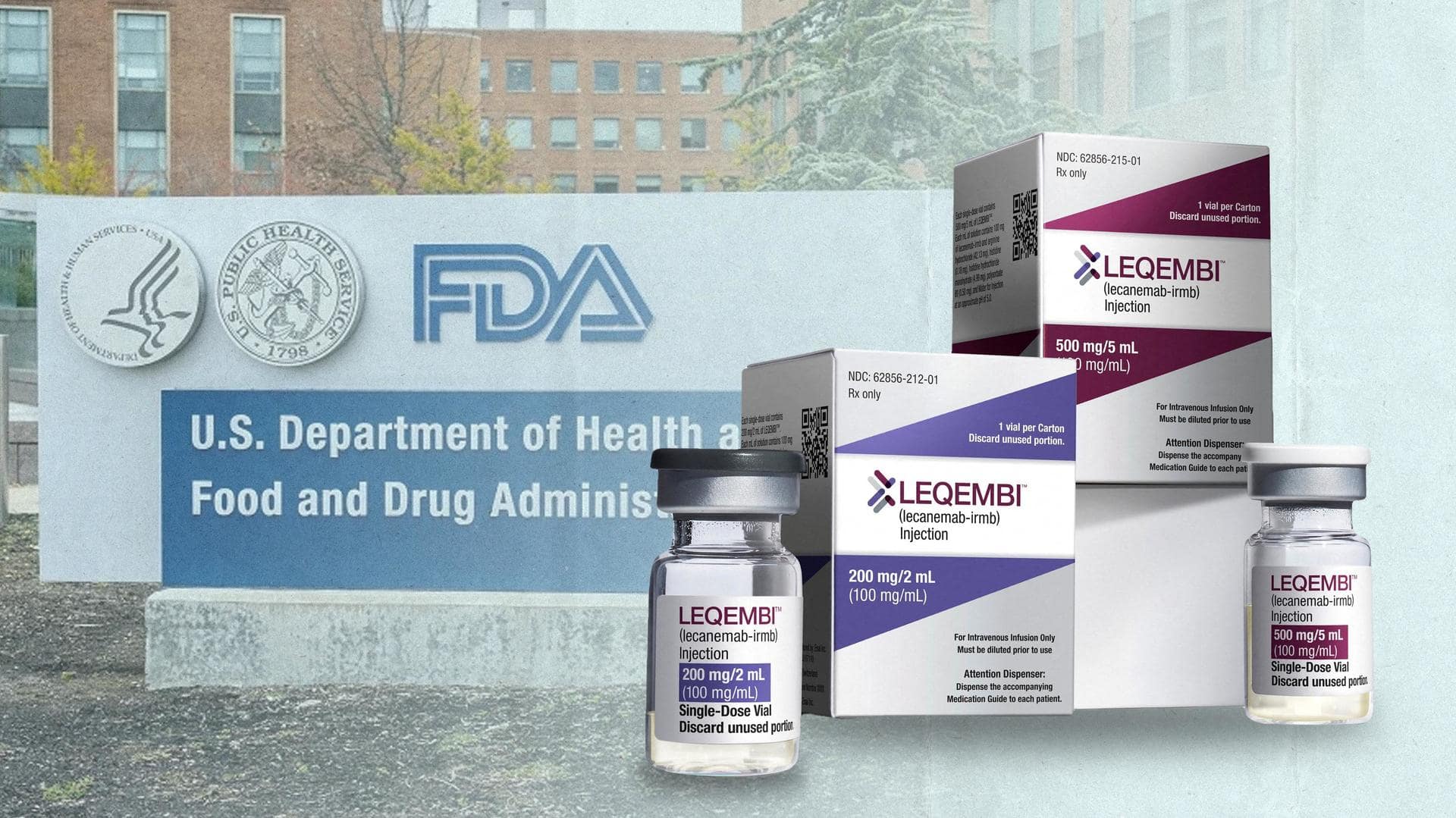
FDA approves Eisai and Biogen's Leqembi as Alzheimer's drug
What's the story
Putting an end to the wait, the United States Food and Drug Administration (FDA) has granted standard approval to Eisai and Biogen's Leqembi for treating Alzheimer's disease. The lethal condition has evaded drugmakers' efforts for many years. However, Leqembi's label will have the FDA's "boxed" safety warning, which alerts users to the possibility of potentially harmful brain swelling when taking medications for Alzheimer's disease.
Milestone
Marks a milestone
The FDA's approval represents a significant development in getting a drug for this degenerative condition. According to trial results, for people with early-stage of Alzheimer's disease, the medication reduces the disease's progression by 27%. However, Leqembi is not a cure. It is only an antibody created to get rid of amyloid beta protein buildup in the patients' brains.
Quote
A triumph for the Alzheimer's disease community
"Today we believe is a triumph for the Alzheimer's disease community, after so many years of hard work by so many scientists, physicians and clinical trial participants and their care partners," Eisai's U.S. chief executive, Ivan Cheung, said in an interview to Reuters.
Boxed warning
What does a boxed warning mean?
The boxed warning on Leqembi's label implies the potential dangers of it. According to data on the medication's updated label, taking specific anticoagulants along with Leqembi has been associated with an increased risk of cerebral hemorrhage. According to Dr. Erik Musiek, a neurologist at Barnes-Jewish Hospital, "the boxed warning seems appropriate, as the risks need to be carefully considered and discussed with patients."
Insurance
How will insurance be handled?
Leqembi's capacity to eliminate amyloid was the basis for its "accelerated" FDA clearance in January, but the Medicare health plan offered by the US government to persons 65 and older had limited coverage to those taking part in clinical trials. However, Medicare after the approval stated that albeit with certain restrictions, it would now cover antibody treatments for patients through the senior insurance program.
Disease treatment
Helping Americans pay
Aduhelm, the first Alzheimer's disease drug authorized by the FDA, was also created by partners Eisai and Biogen, but its use was severely constrained by Medicare coverage constraints. Per Alzheimer's Association, over six million Americans have this disease. Medicare coverage is an essential step in helping seniors with Alzheimer's pay $26,500 (about Rs. 22 lakh) per year for treatment.
Other markets
The drug will soon be approved in other markets
During Leqembi's initial three years on the market, Eisai predicted that approximately 100,000 US patients will take amyloid-lowering medications. The drug is also gearing up for approval in the European Union, China, Canada, Great Britain, and South Korea, apart from the US. Japan is most likely to get approval for the drug by the end of September 2023, according to Eisai CEO Haruo Naito.